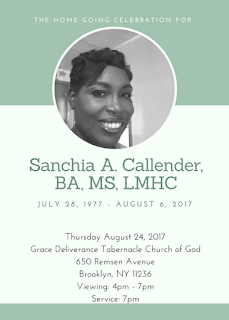Autistic vs With Autism
Cross posted at Say Anything: Reader blogs.
 Should we refer to an individual as "autistic" or "a person with autism"? Some people are very diligent about drawing a distinction between the two and making a point of saying that they will only use one. Usually they choose "person with autism". I didn't really care about the distinction until I started working on this post.
Should we refer to an individual as "autistic" or "a person with autism"? Some people are very diligent about drawing a distinction between the two and making a point of saying that they will only use one. Usually they choose "person with autism". I didn't really care about the distinction until I started working on this post.
I've leaned more towards "autistic" because it is far less cumbersome to say and write. But many would argue that merely saying "autistic" de-emphasizes the personhood of the autistic individual while "person with autism" recognises that the individual is "a person first". I disagree with that mode of thinking.
I've cooked up this niffty little graphic over here to help me make my point (no wise cracks about my graphics skills please). What is it? It's a cup. What kind of cup? It's a red cup. Does the fact that it's red make it any less of a cup? Not to my mind so why bother with saying something like "a cup that happens to be red" (equivalent to "a person with autism") instead of just "a red cup" (equivalent to "autistic")?
My analogy breaks down a bit because red-ness does not imply cup-ness. However, personhood is implied in the term "autistic." It is a descriptor that is only appropriate for people while red can appropriately describe a multitude of things. "Person with autism" suggests, even though the people using the term would (I hope) deny believing such a thing, that autism can exist without personhood. That's not something that I want to imply.
In any case, I think a more important distinction to make in how we use language in discussing autism is to recognise that people are autistic for life. Autism is not a childhood something that will fade away with time. The autistic kids that we worry about today will grow up (with that that entails) to be autistic adults each one as different from the other as snowflakes. They will still need our love, support, and compassion then. There are autistic adults today who need it now.
 Should we refer to an individual as "autistic" or "a person with autism"? Some people are very diligent about drawing a distinction between the two and making a point of saying that they will only use one. Usually they choose "person with autism". I didn't really care about the distinction until I started working on this post.
Should we refer to an individual as "autistic" or "a person with autism"? Some people are very diligent about drawing a distinction between the two and making a point of saying that they will only use one. Usually they choose "person with autism". I didn't really care about the distinction until I started working on this post.I've leaned more towards "autistic" because it is far less cumbersome to say and write. But many would argue that merely saying "autistic" de-emphasizes the personhood of the autistic individual while "person with autism" recognises that the individual is "a person first". I disagree with that mode of thinking.
I've cooked up this niffty little graphic over here to help me make my point (no wise cracks about my graphics skills please). What is it? It's a cup. What kind of cup? It's a red cup. Does the fact that it's red make it any less of a cup? Not to my mind so why bother with saying something like "a cup that happens to be red" (equivalent to "a person with autism") instead of just "a red cup" (equivalent to "autistic")?
My analogy breaks down a bit because red-ness does not imply cup-ness. However, personhood is implied in the term "autistic." It is a descriptor that is only appropriate for people while red can appropriately describe a multitude of things. "Person with autism" suggests, even though the people using the term would (I hope) deny believing such a thing, that autism can exist without personhood. That's not something that I want to imply.
In any case, I think a more important distinction to make in how we use language in discussing autism is to recognise that people are autistic for life. Autism is not a childhood something that will fade away with time. The autistic kids that we worry about today will grow up (with that that entails) to be autistic adults each one as different from the other as snowflakes. They will still need our love, support, and compassion then. There are autistic adults today who need it now.


I did a poll a few months ago asking parents and autistic people which they prefer. The parents said 'with autism' and the autistic people preferd autistic.
ReplyDeleteI'm not surprised. I suppose many a parent would tend to think of autism as something separate in their child while the autistic adult would recognise it as a component of their being.
ReplyDeleteThe most eloquent argument I know of for "autistic person" rather than "person with autism" was written several years ago by Jim Sinclair, cofounder of Autism Network International, the autistic self-advocacy organization that produces the annual Autreat conference/retreat.
ReplyDeleteI'm both a parent and an adult on the autism spectrum. I *greatly* prefer "autistic person", for the same reasons Jim puts forth.
I wrote about the subject too, in the appendices of a paper I contributed to Autism and Representation, an academic conference held at Case Western Reserve University in Cleveland in October 2005, examining the way autism and autistic people are represented in literature, film, and popular culture. There are a few more sources worth reading, that I mentioned in the paper, among them Jean Kearns Miller's wonderful anthology of writings by women on the spectrum, Women From Another Planet: Our Lives in the Universe of Autism.